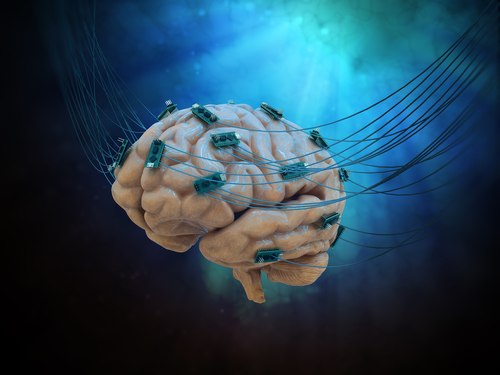Researchers found that the use of brain electrical stimulation as a way to modulate pain, depression, anxiety, or insomnia lacks clinical evidence demonstrating its benefits.
The study, “Benefits and Harms of Cranial Electrical Stimulation for Chronic Painful Conditions, Depression, Anxiety, and Insomnia: A Systematic Review,” was published in the Annals of Internal Medicine.
Cranial electrical stimulation (CES) is a noninvasive technique in which electric stimulus is delivered to the brain to change the way brain cells are working. The use of such strategy has been growing, and is commonly used to treat diseases like depression, anxiety, and insomnia.
CES has also been shown to have the potential to ease pain in patients with chronic conditions such as fibromyalgia.
CES devices are available in the United States by prescription only. However, in some other countries such devices can be purchased directly to manufactures. Also, second-hand devices are accessible through internet-based auctions. This easy access highlights the need for better evidence of the benefits and harms of CES.
A team led by researchers at the West Los Angeles Veterans Affairs Medical Center reviewed clinical data collected from 26 randomized trials that evaluated the safety and efficacy of CES to treat pain, depression, anxiety, and sleep disturbances.
Three of the reviewed studies evaluated the use of CES compared to standard-care or sham brain stimulation in patients with fibromyalgia. Although one of the studies suggested that CES could be beneficial, evaluation of the merged clinical data failed to reveal a positive effect on CES vs. the sham treatment in preventing fibromyalgia-associated pain.
Another 11 studies on spinal cord injury-associated pain or chronic neuromuscular pain, headache, and degenerative joint disease also failed to demonstrate the benefit of CES to ease pain.
The remaining studies the team analyzed were focused on the use of CES to treat anxiety, depression, and insomnia. Results here were also inconclusive, with limited data showing a positive effect of CES to improve these symptoms.
“The evidence for the effectiveness and safety of CES is sparse,” the researchers wrote. Only one study with “low-strength evidence” suggested a beneficial effect of CES in patients with anxiety and depression.
Despite no major safety issues reported in the analyzed trials, additional larger-scale and well-designed studies are necessary to fully address the safety of cranial electrical stimulation, researchers said.

